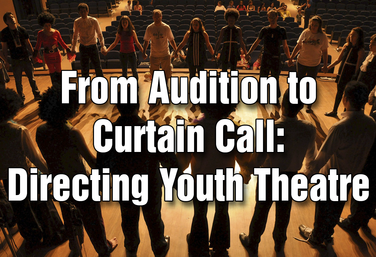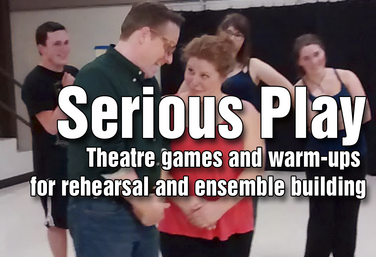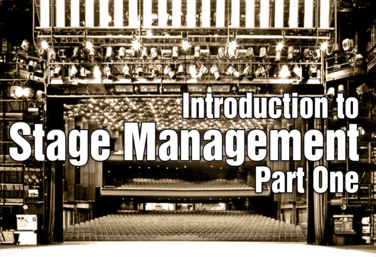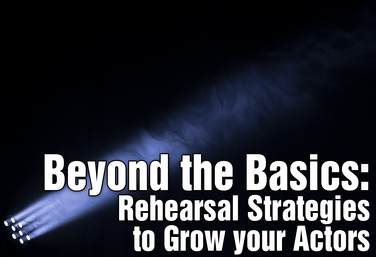Courses

From Audition to Curtain Call: Directing Youth Theatre
by Steven Stack

Serious Play: Theatre Games and Warmups for Rehearsal and Ensemble Building
by Todd Espeland

Introduction to Stage Management Part One
by Karen Loftus

Beyond the Basics: Rehearsal Strategies to Grow Your Actors
by Julie Hartley
Lesson Plans
Stage Managers in Rehearsal
by Karen Loftus
Costume Challenge - Rehearsal Blacks Elevated
by Kerry Hishon
Resources
A Pause for Pauses

Drama Teacher Tune Up
Rehearsal Exercises
A Midsummer Night's Dream Character Warm-up

Drama Teacher Tune-Up 2
Reflection Sheets
Scene Work: Where do I Start?
Active Verb List
Creating a Director's Vision
Sample Rehearsal Schedule with Exercises
The Five Keys every Actor Needs to Know
Poster: The Role of the Audience
Poster: Theatre Audience Etiquette
Participation/Positive Contribution Rehearsal Rubric
Participation/Positive Contribution Rehearsal Rubric - Student Handout
Participation/Positive Contribution Rehearsal Rubric - Evaluator
Memorization Tips, Tricks and Techniques
Who's Who in the Theatre?
00 - Overview
01 - The First Few Rehearsals
02 - Creating the Pre-Rehearsal Warmup
03 - How Do We Keep Student Actors Invested in Rehearsal?
04 - Character Development
05 - Strategies for Rehearsing a Classical Play
06 - Strategies for Rehearsing Comedy
07 - Common Rehearsal Challenges
08 - Final Rehearsals
Duo Scene Information Sheet
Monologue Information Sheet
What Does Your Character Want to DO?
What STOPS Your Character?
PLCs

Rock your next Rehearsal
Hosted by Matt Webster & Jeremy Bishop

Production Pitfalls
Hosted by Matt Webster, Jeremy Bishop, and Heather Brandon

Planning Your Best Rehearsal
Hosted by Matt Webster, Lindsay Price, Karen Loftus, Claire Broome

Online Rehearsal Strategies
Hosted by Matt Webster, Lindsay Price, Gai Jones, Quincy Young